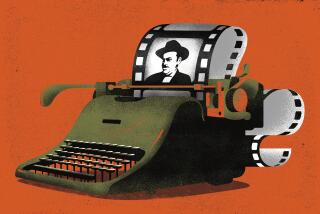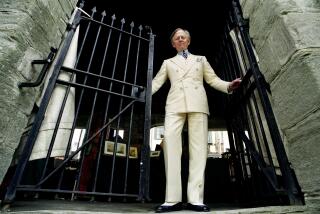Rounding out the Orson Welles story
- Share via
During his lifetime and in the two decades since his death, a common thesis has been that Orson Welles had only himself to blame for his fall in Tinseltown. He had the nerve at 25 to take on newspaper mogul William Randolph Hearst with “Citizen Kane.” He rarely finished productions. He had a messy private life that made more headlines than his movies. And in the end, he was best known as the large man with the mellifluous voice who hawked wine on TV.
But Clinton Heylin, who has written books on Bob Dylan and Van Morrison, hopes to set the record straight in “Despite the System: Orson Welles Versus the Hollywood Studios” (Chicago Review Press, 2005). Touted as a “groundbreaking” look at the filmmaker, Heylin consulted Welles’ shooting scripts, schedules, internal memos, interviews, correspondence and the director’s own conversations, articles and lectures, including a pithy press statement Welles issued when RKO was worried about releasing “Citizen Kane”: “I have at this moment sufficient financial backing to buy ‘Citizen Kane’ back from RKO and release it myself. RKO must release ‘Citizen Kane.’ ”
Welles’ story, Heylin states, is one of “an intelligent, perceptive, passionate, egotistical man, who for all his failings as a person, was absolutely uncompromising in his art.”
Let the debate continue.
More to Read
Only good movies
Get the Indie Focus newsletter, Mark Olsen's weekly guide to the world of cinema.
You may occasionally receive promotional content from the Los Angeles Times.











